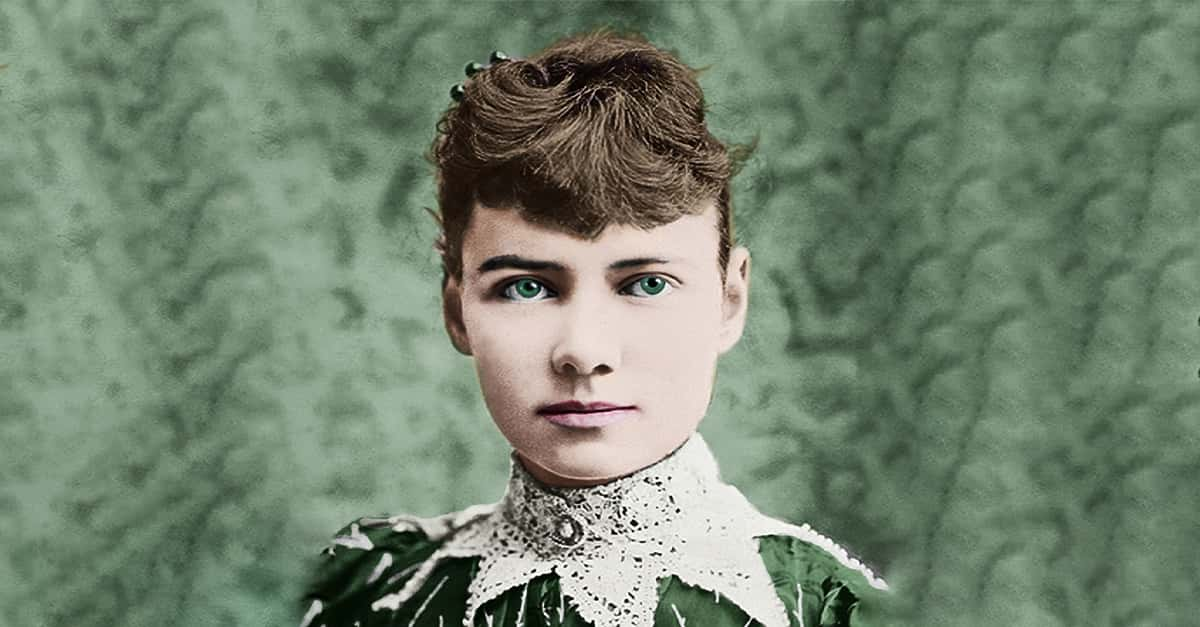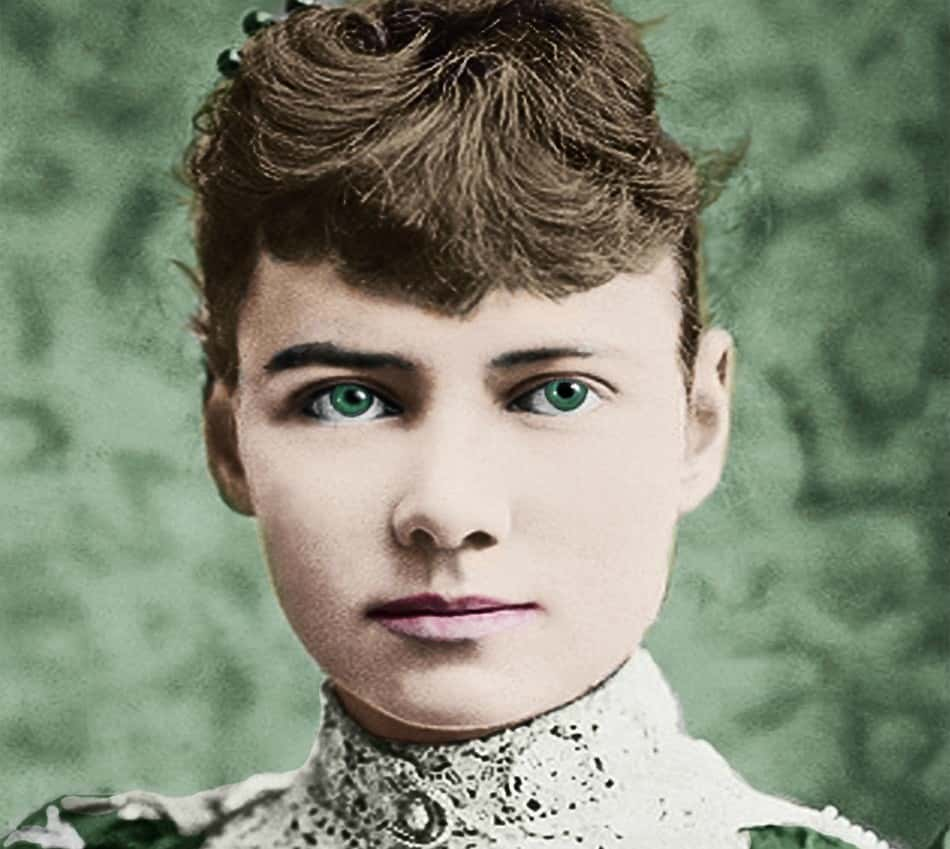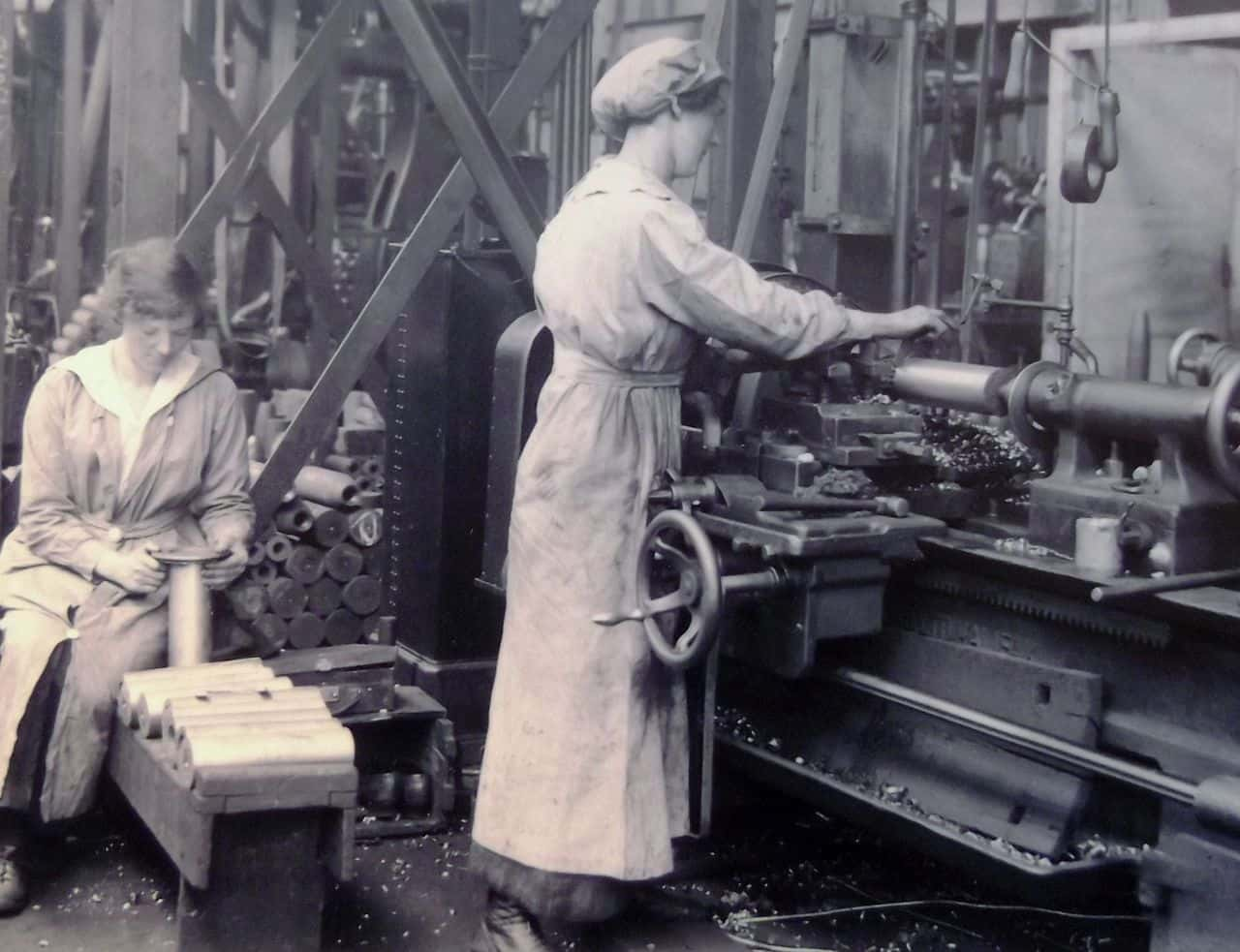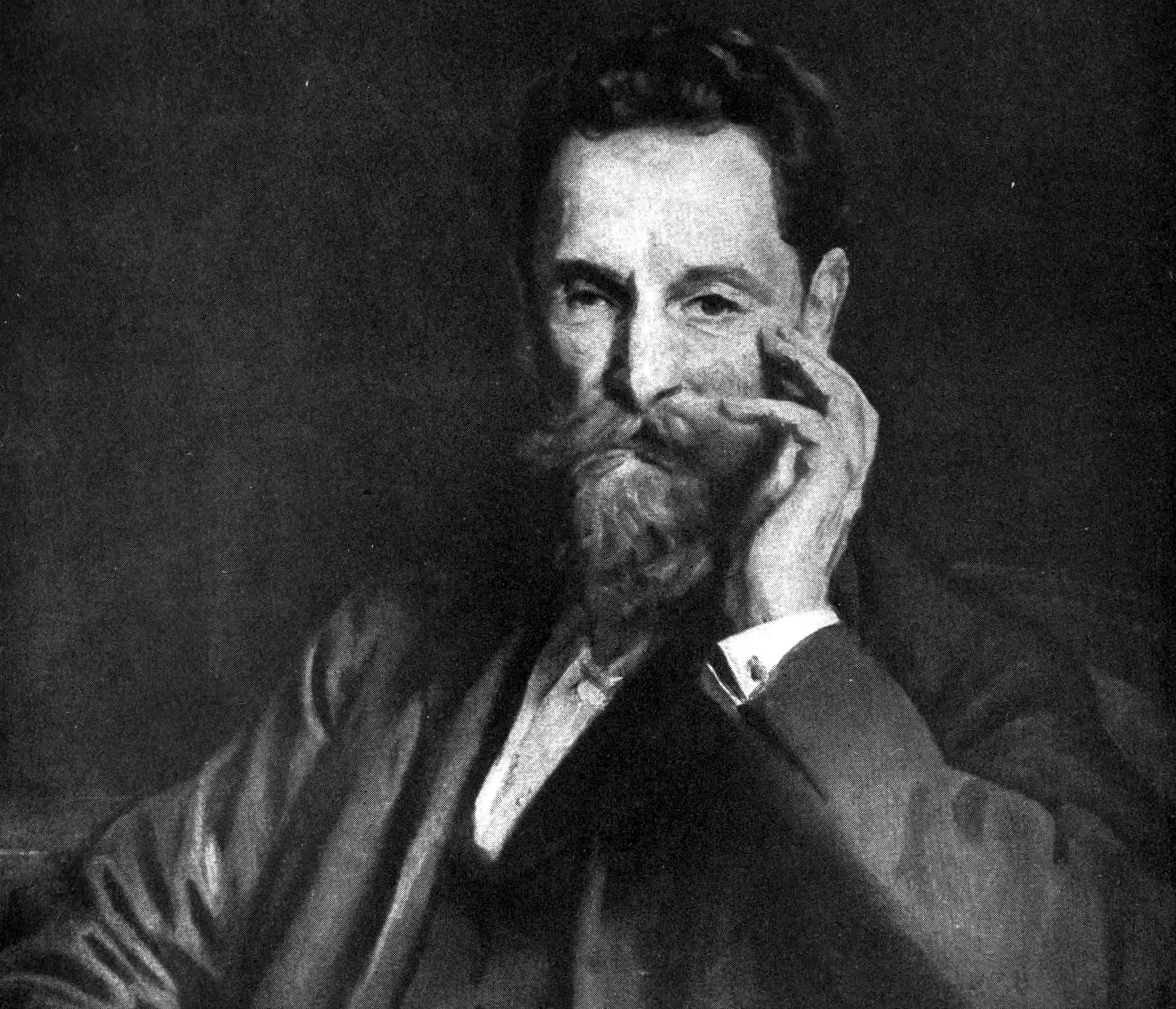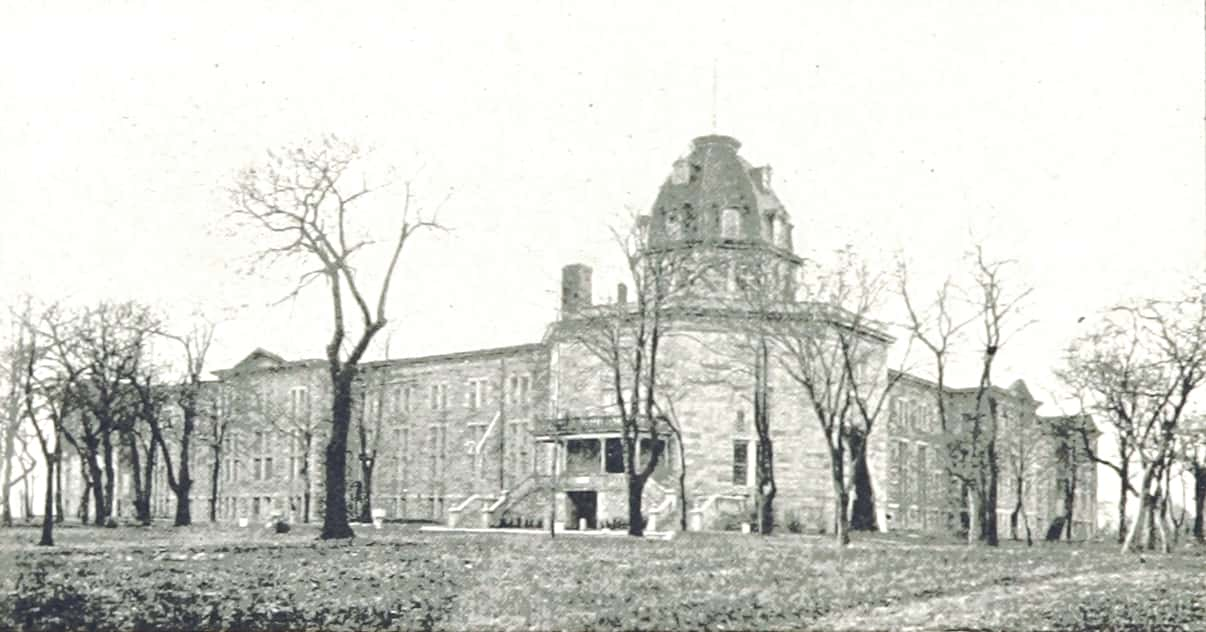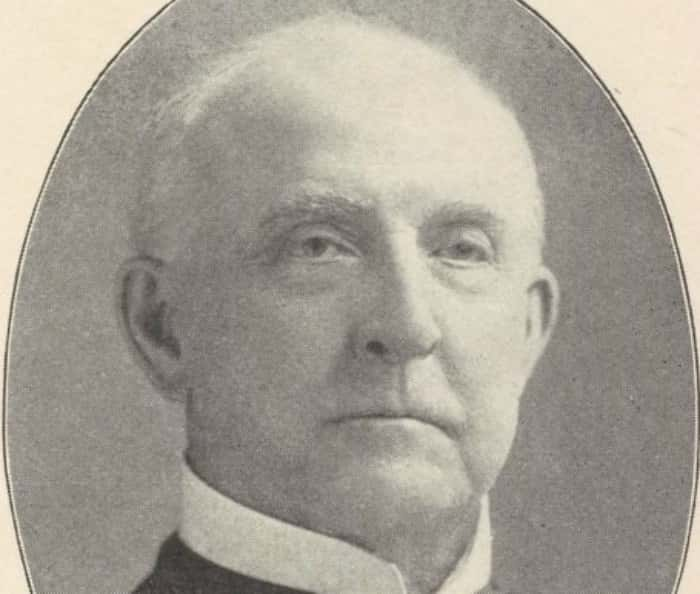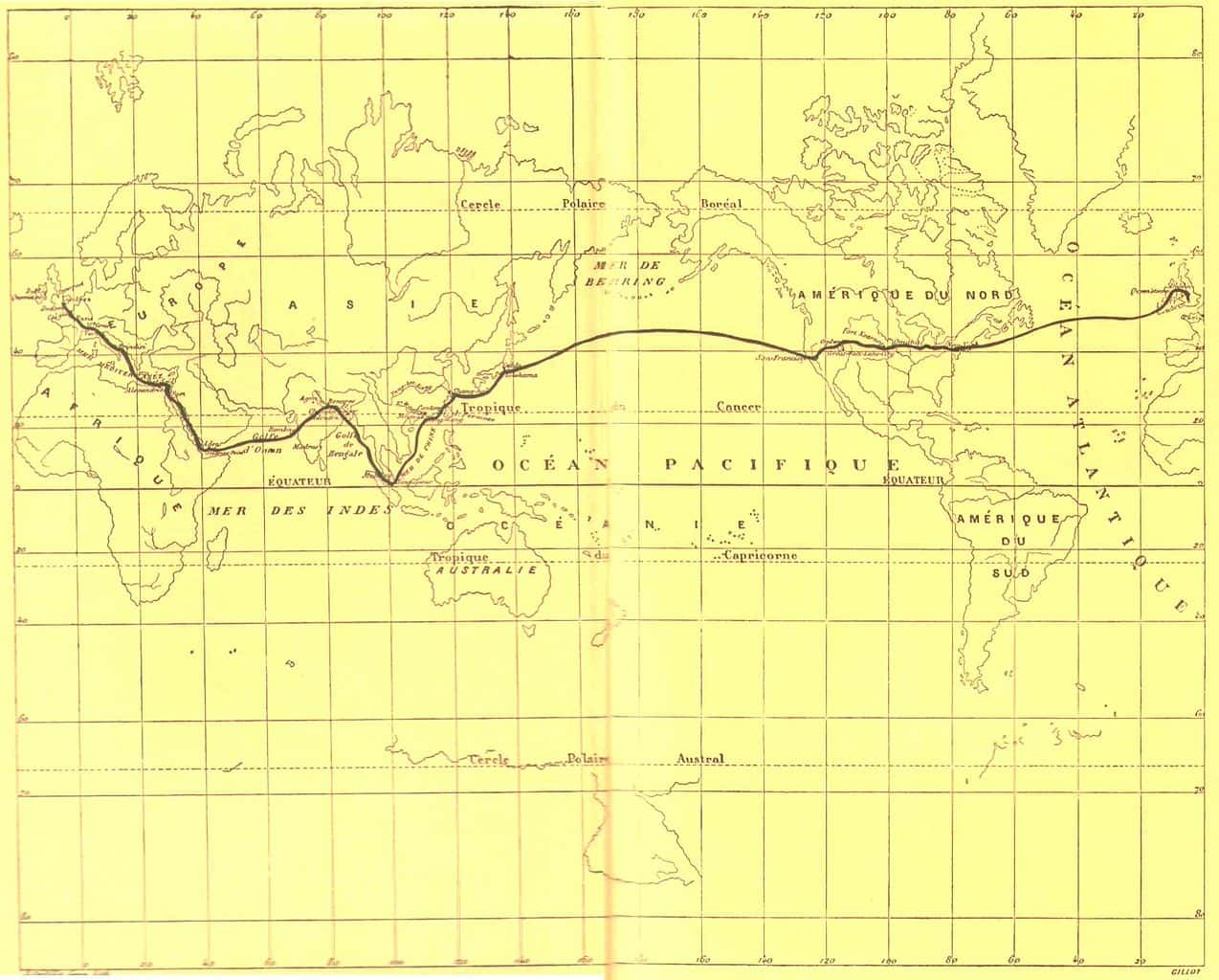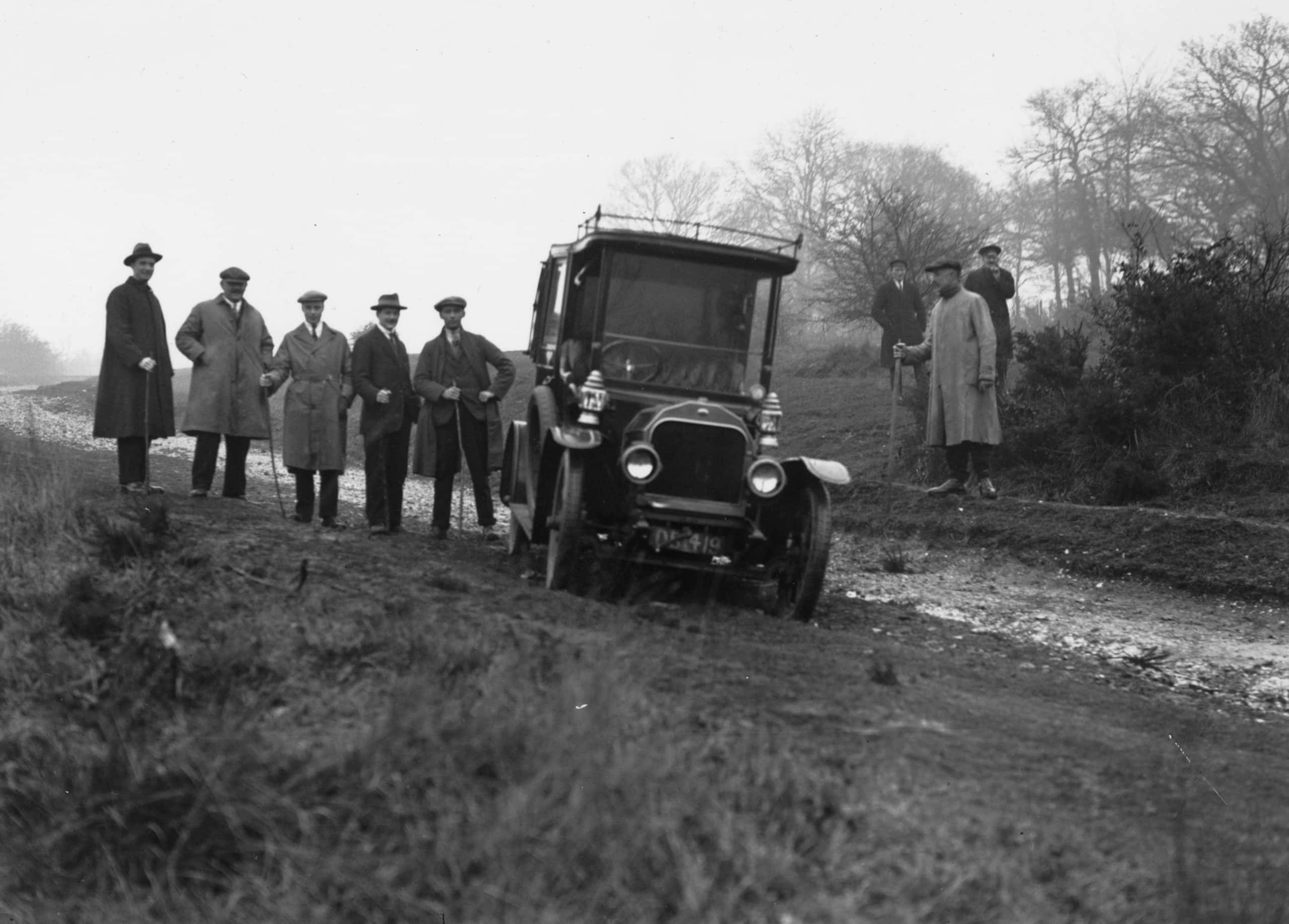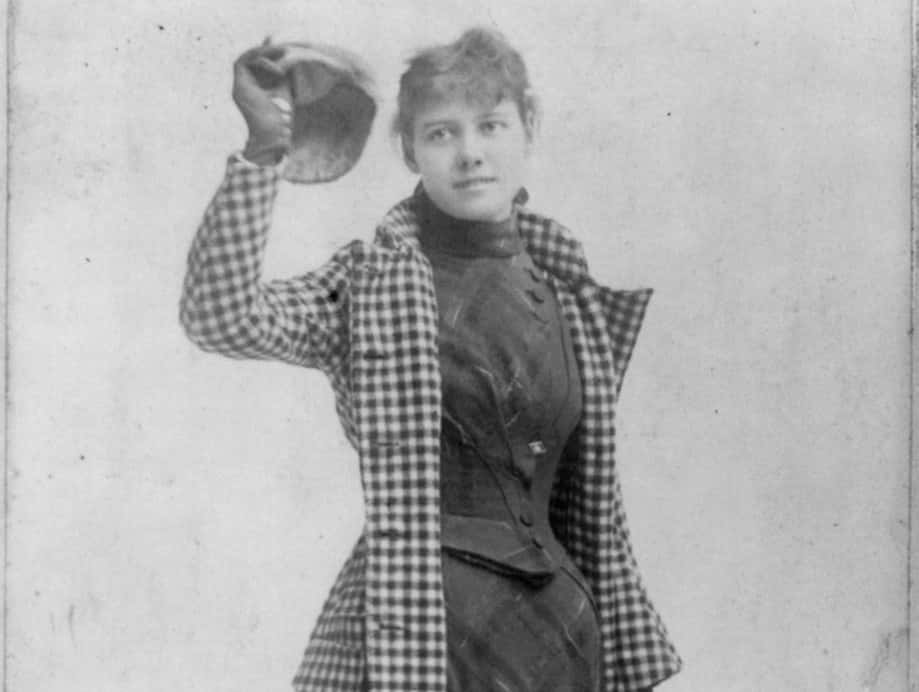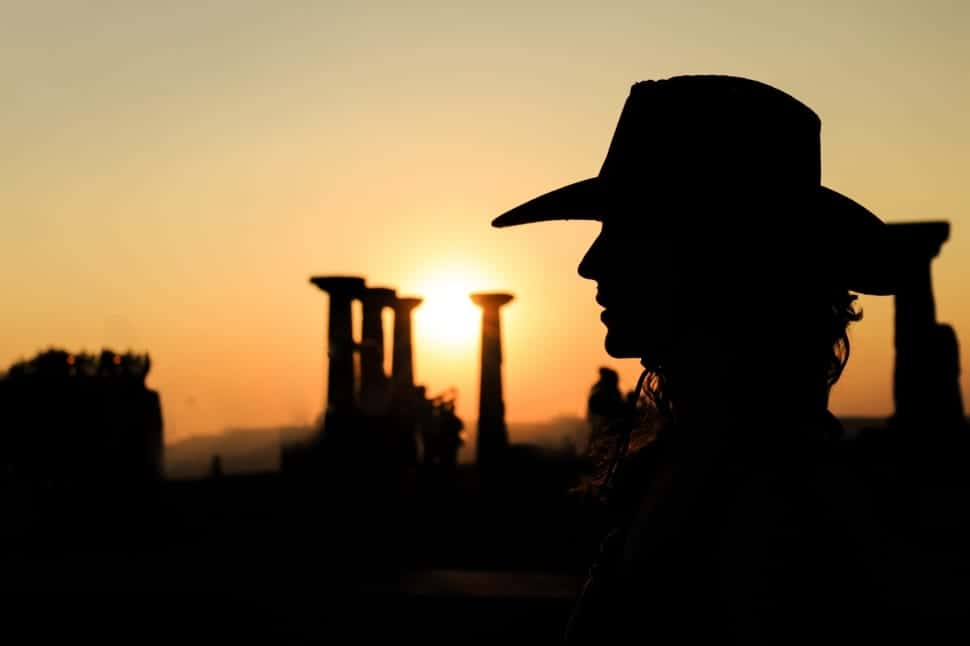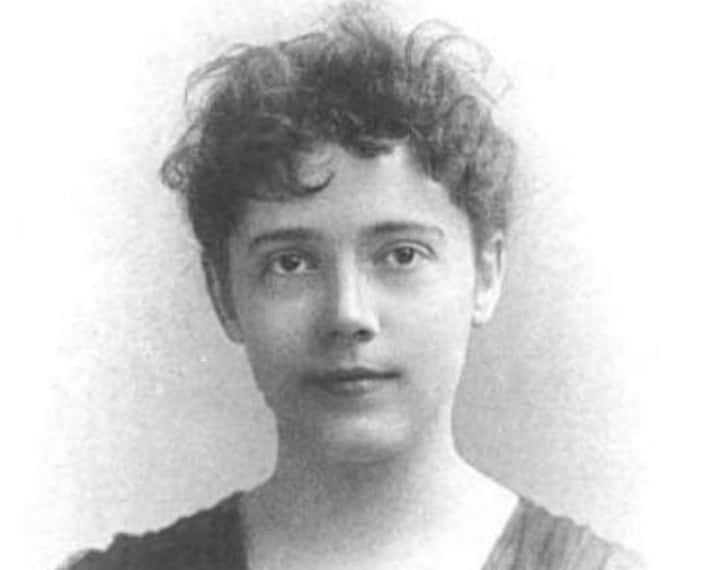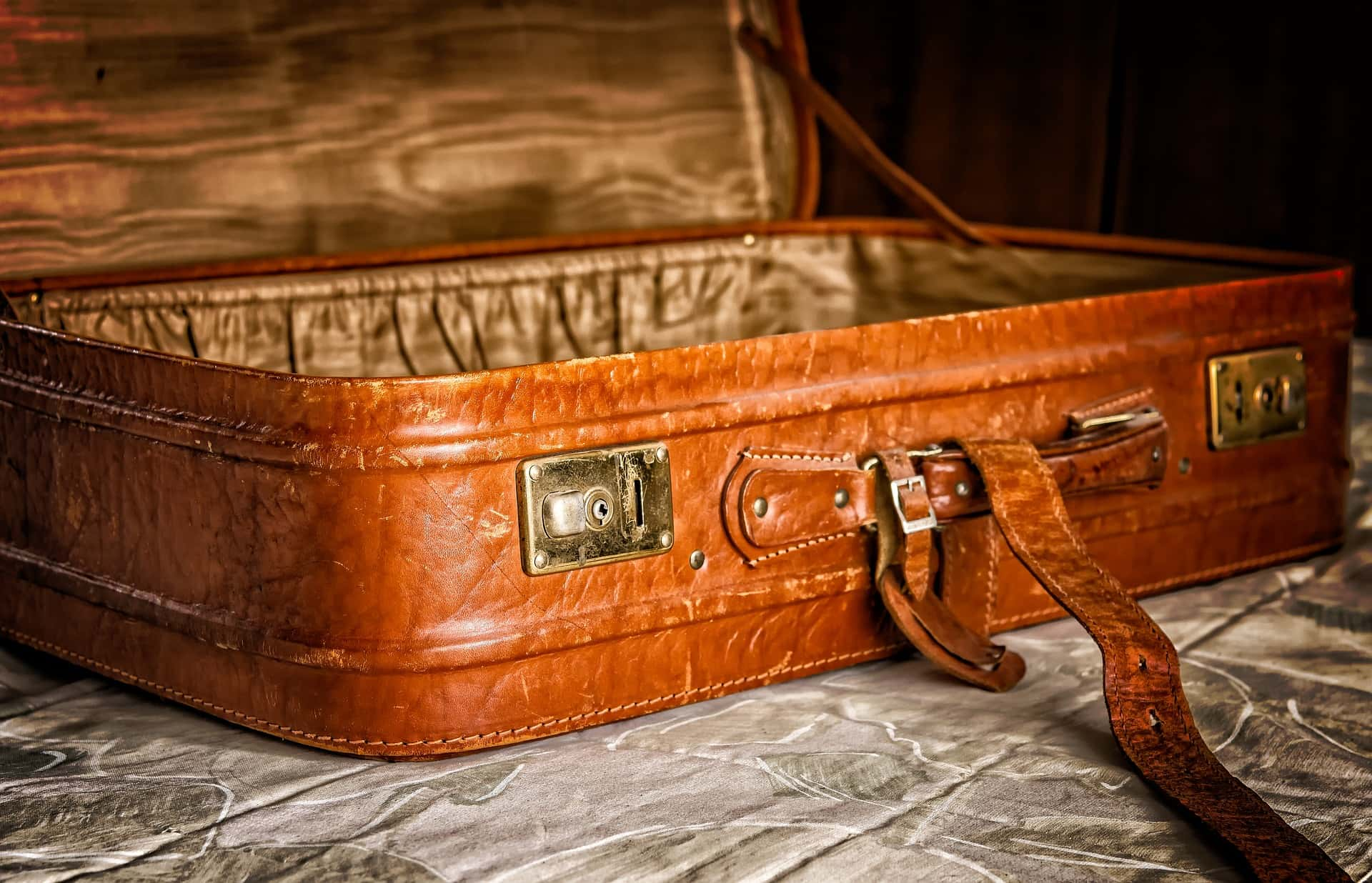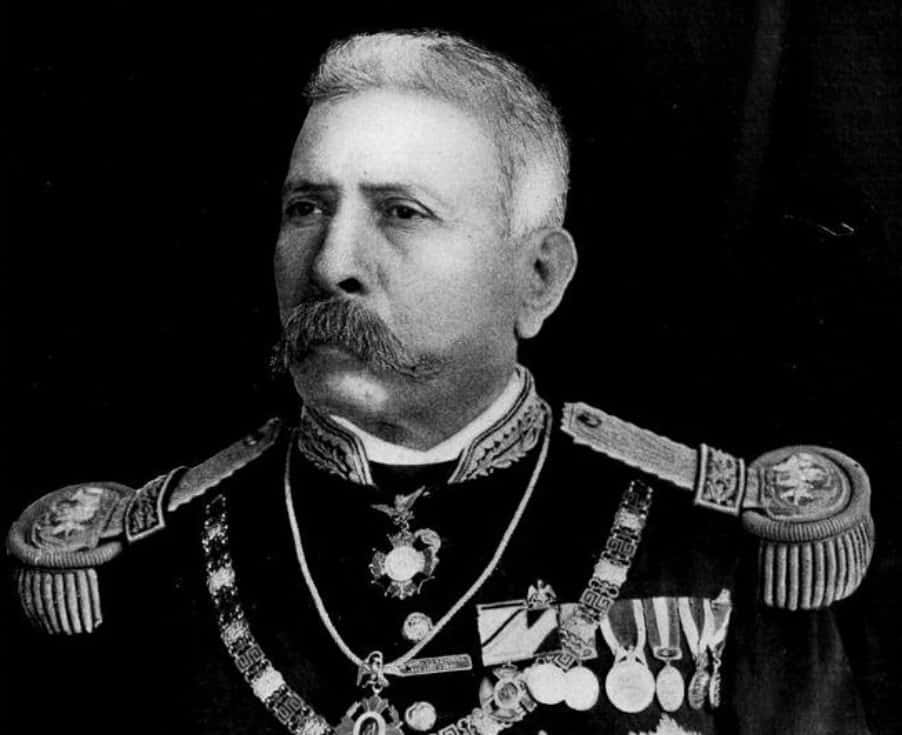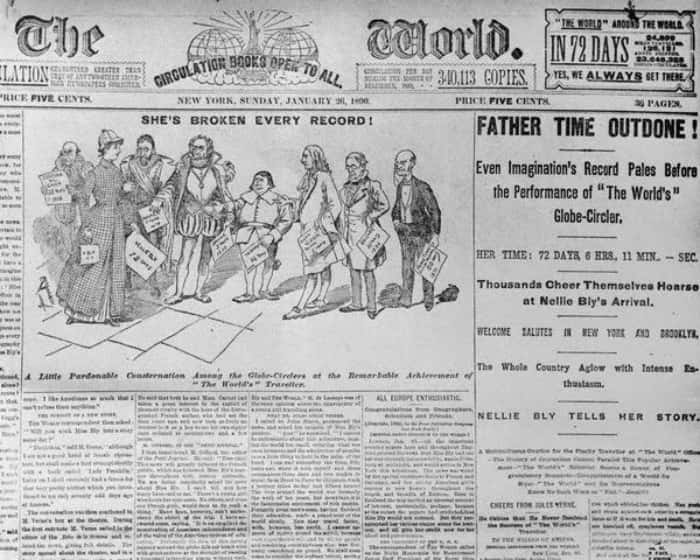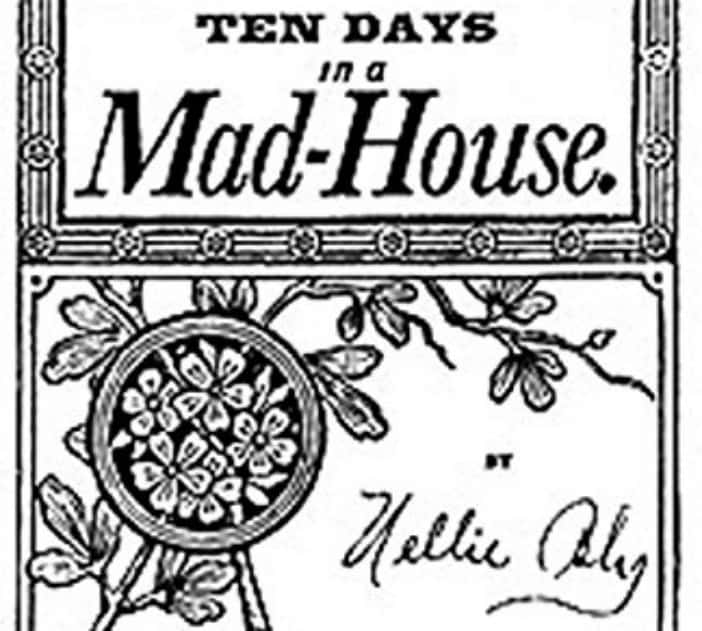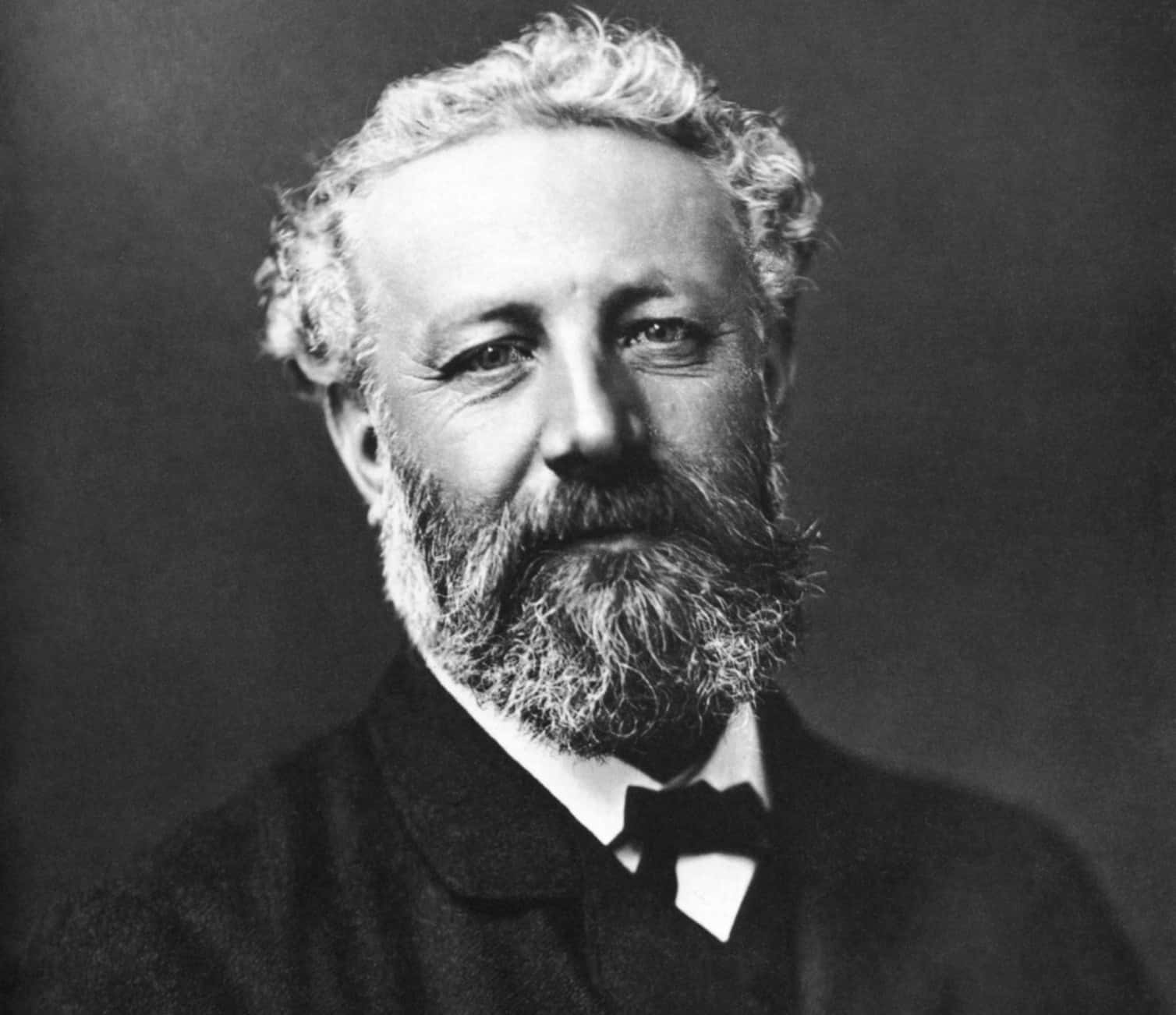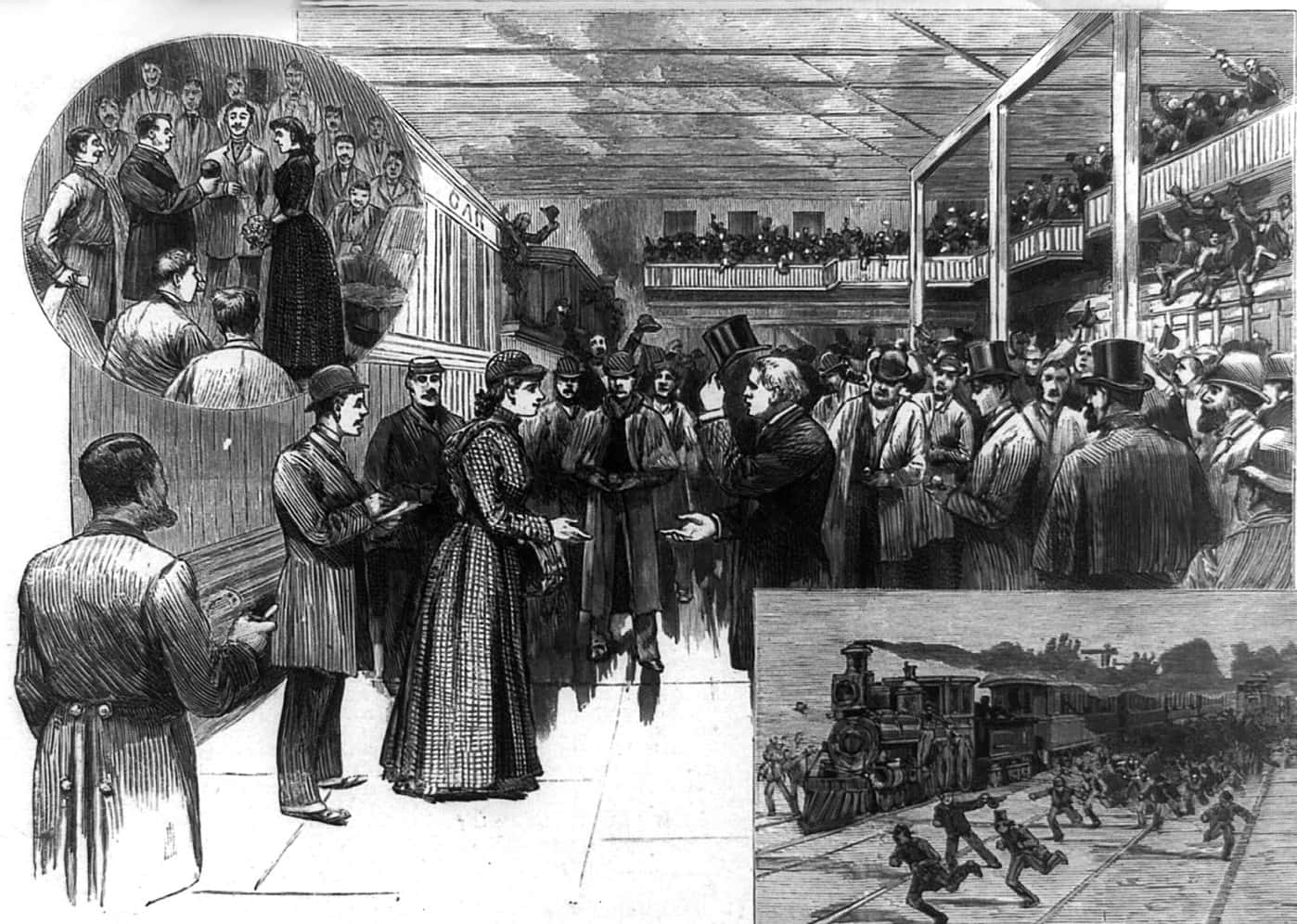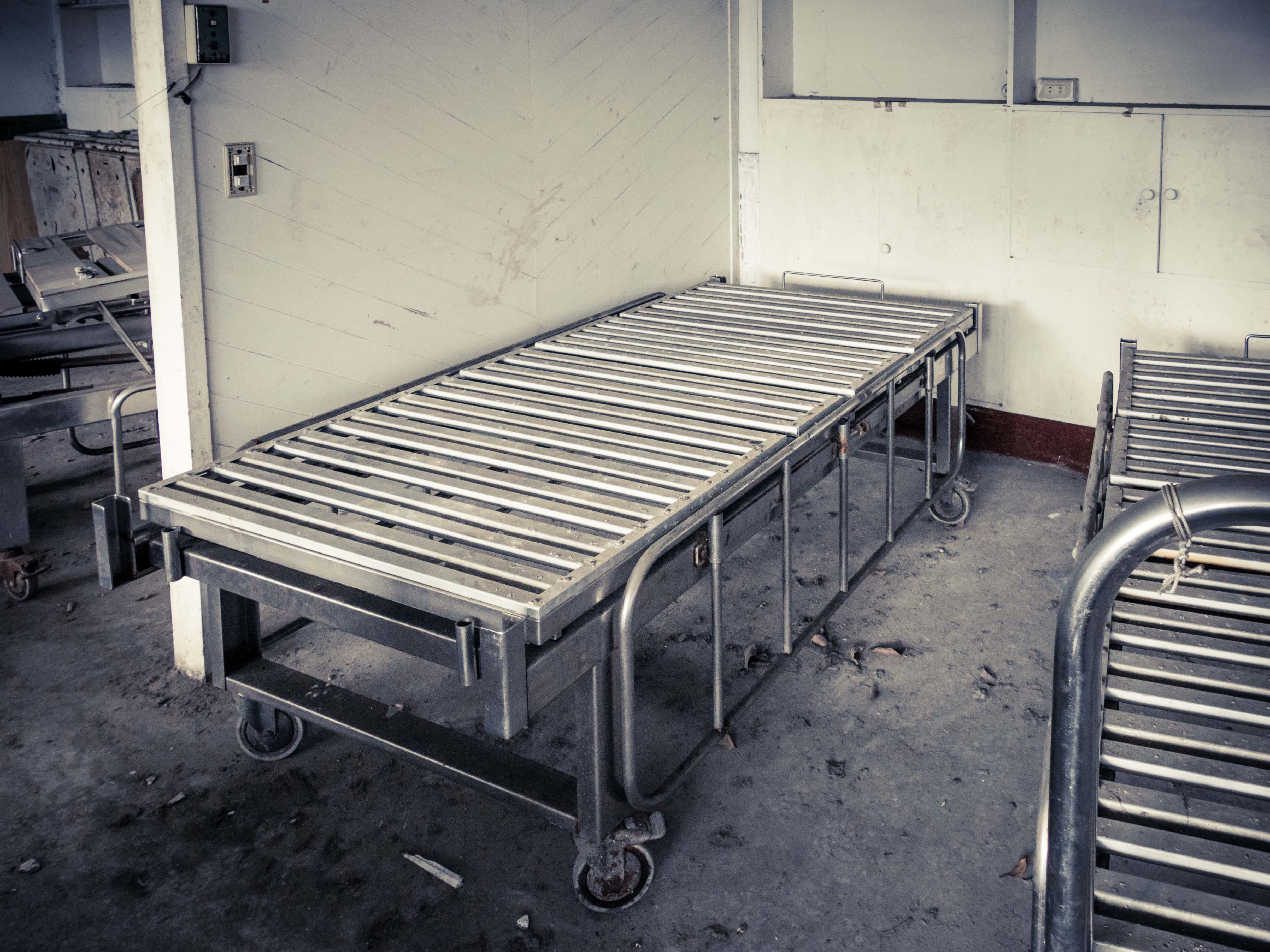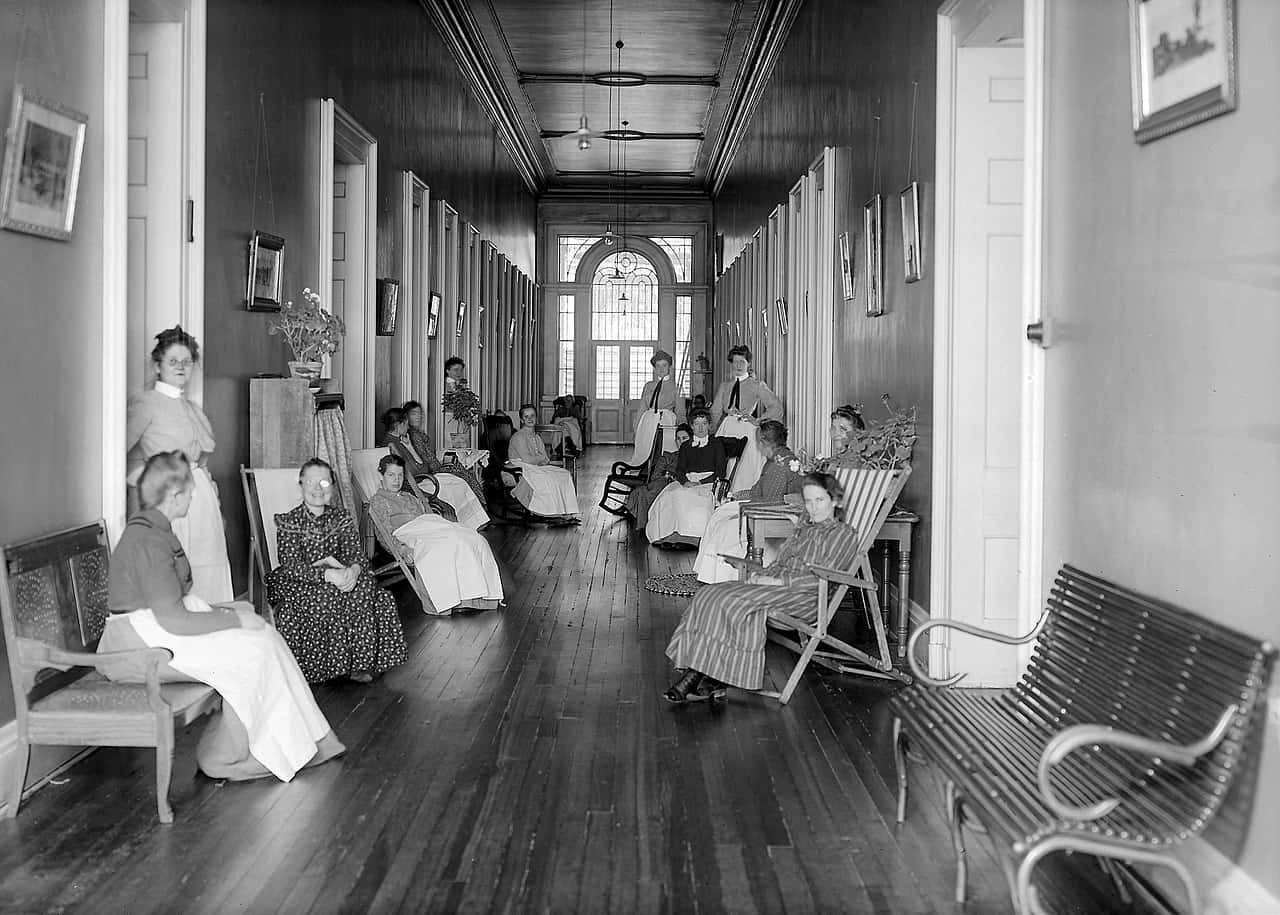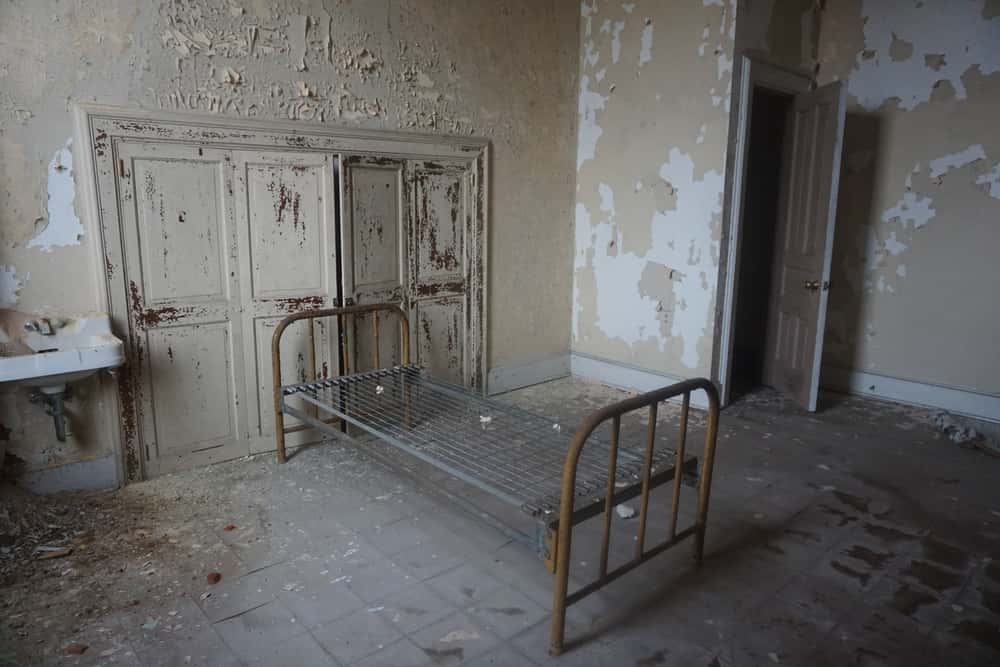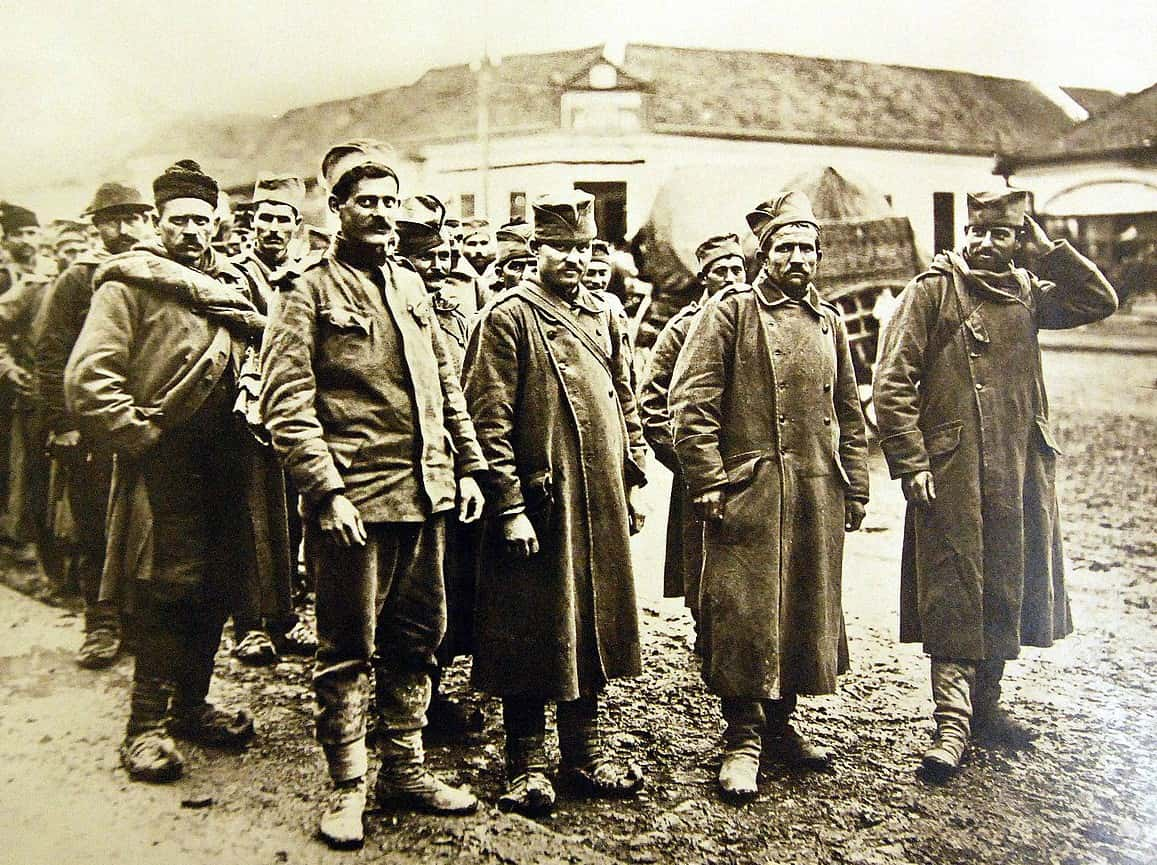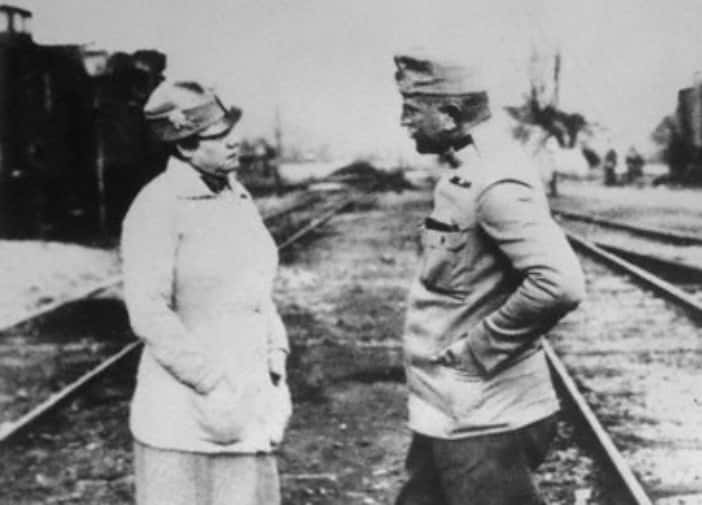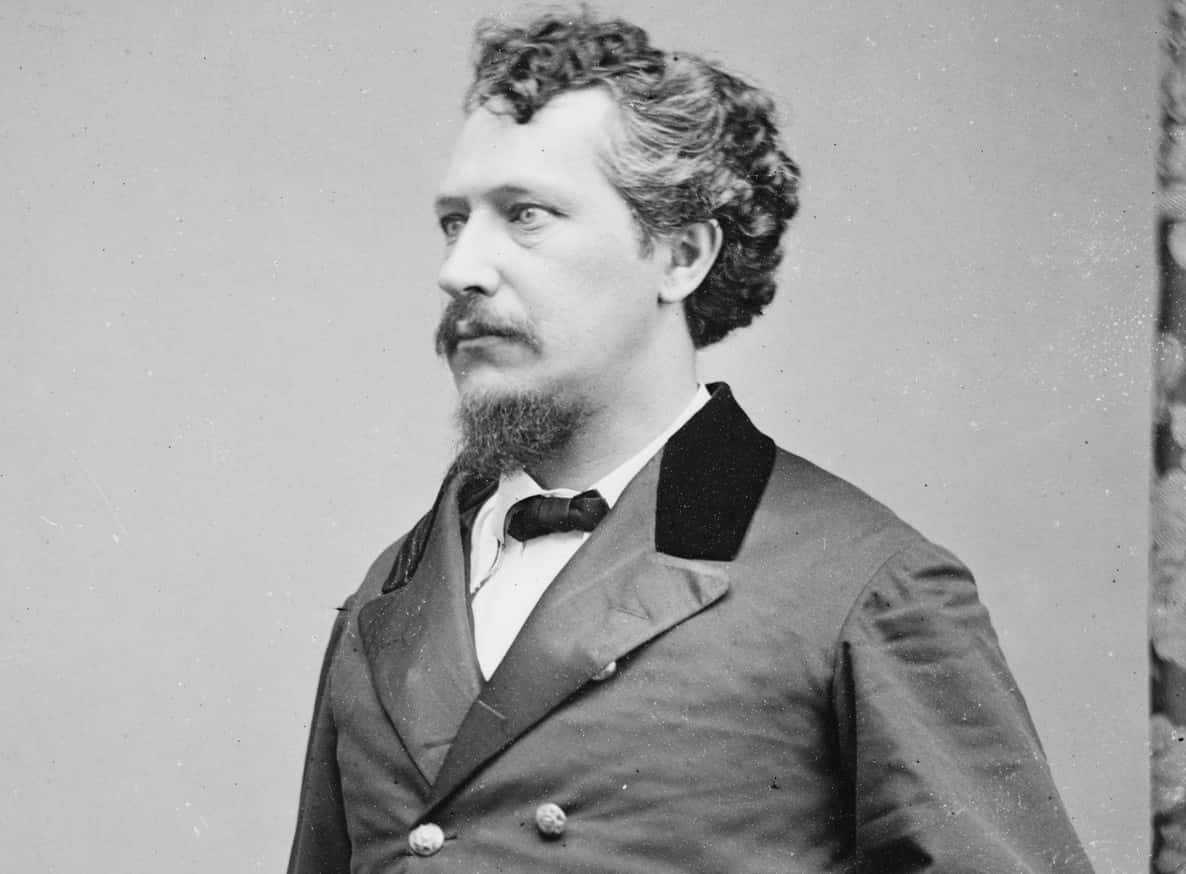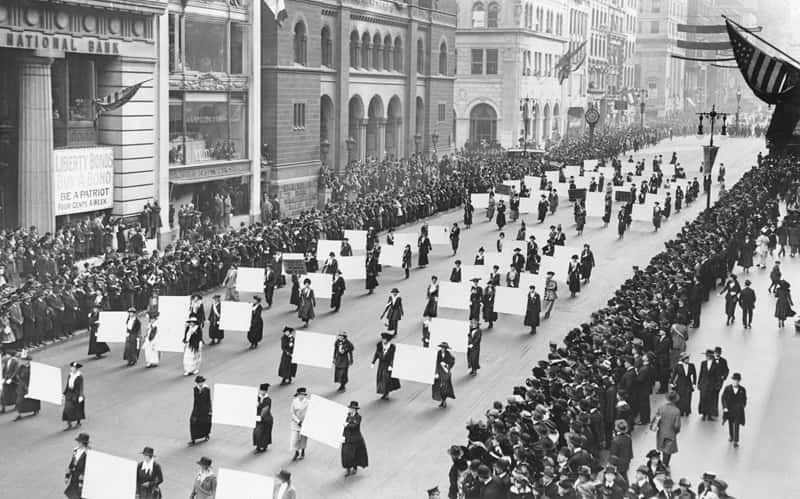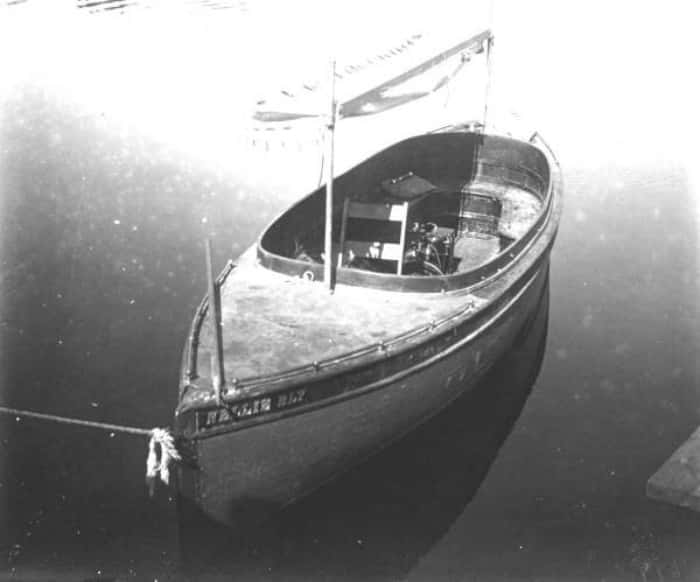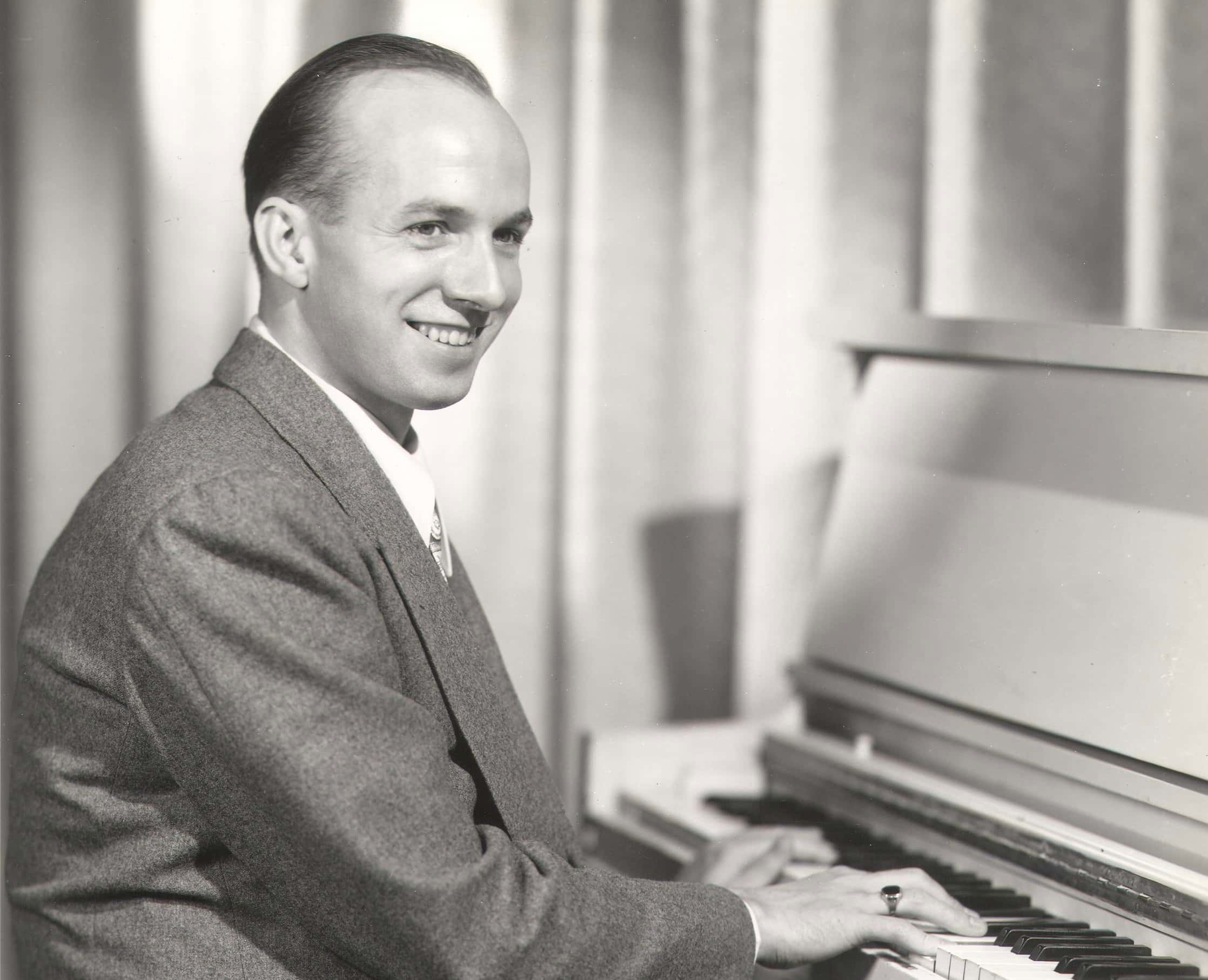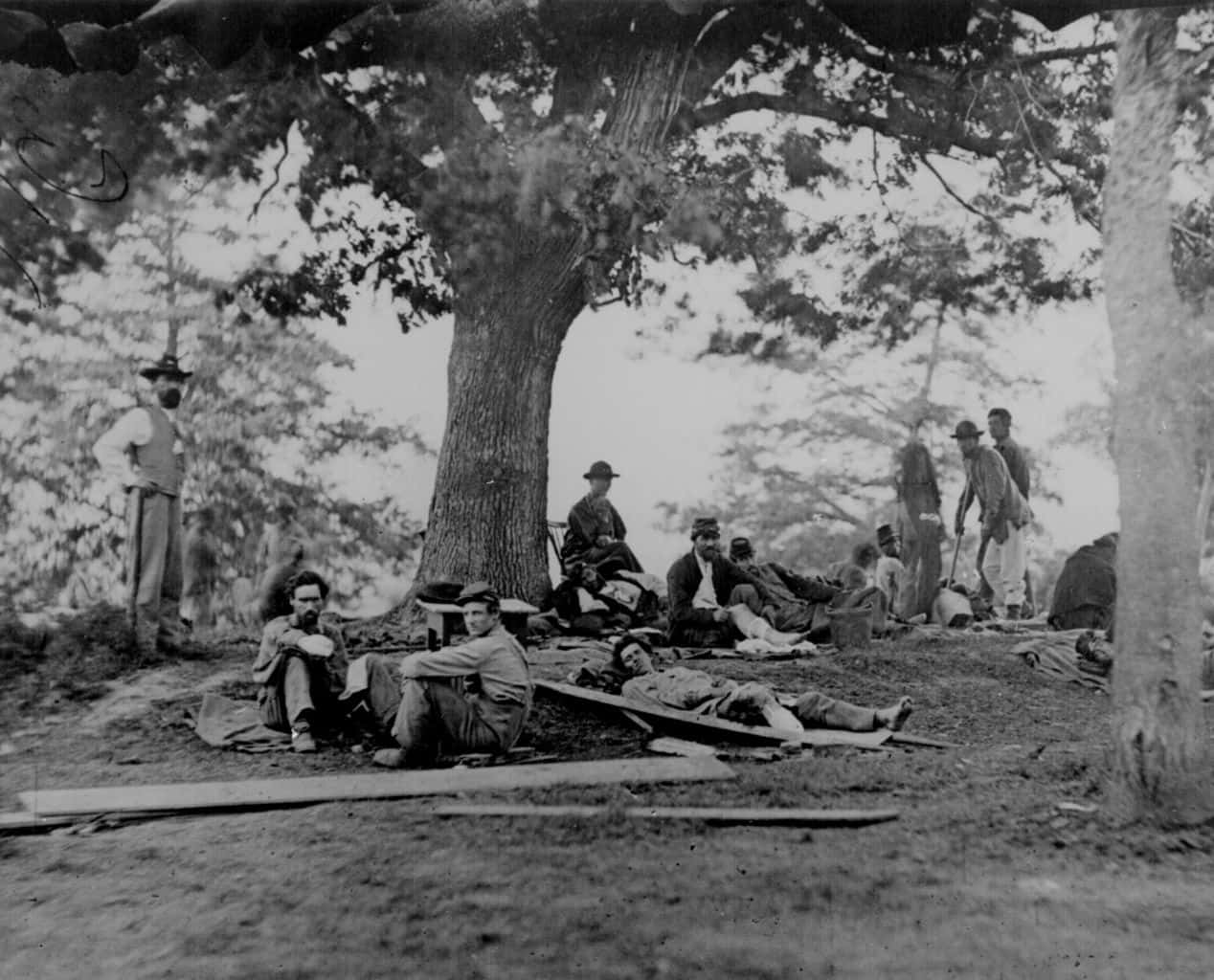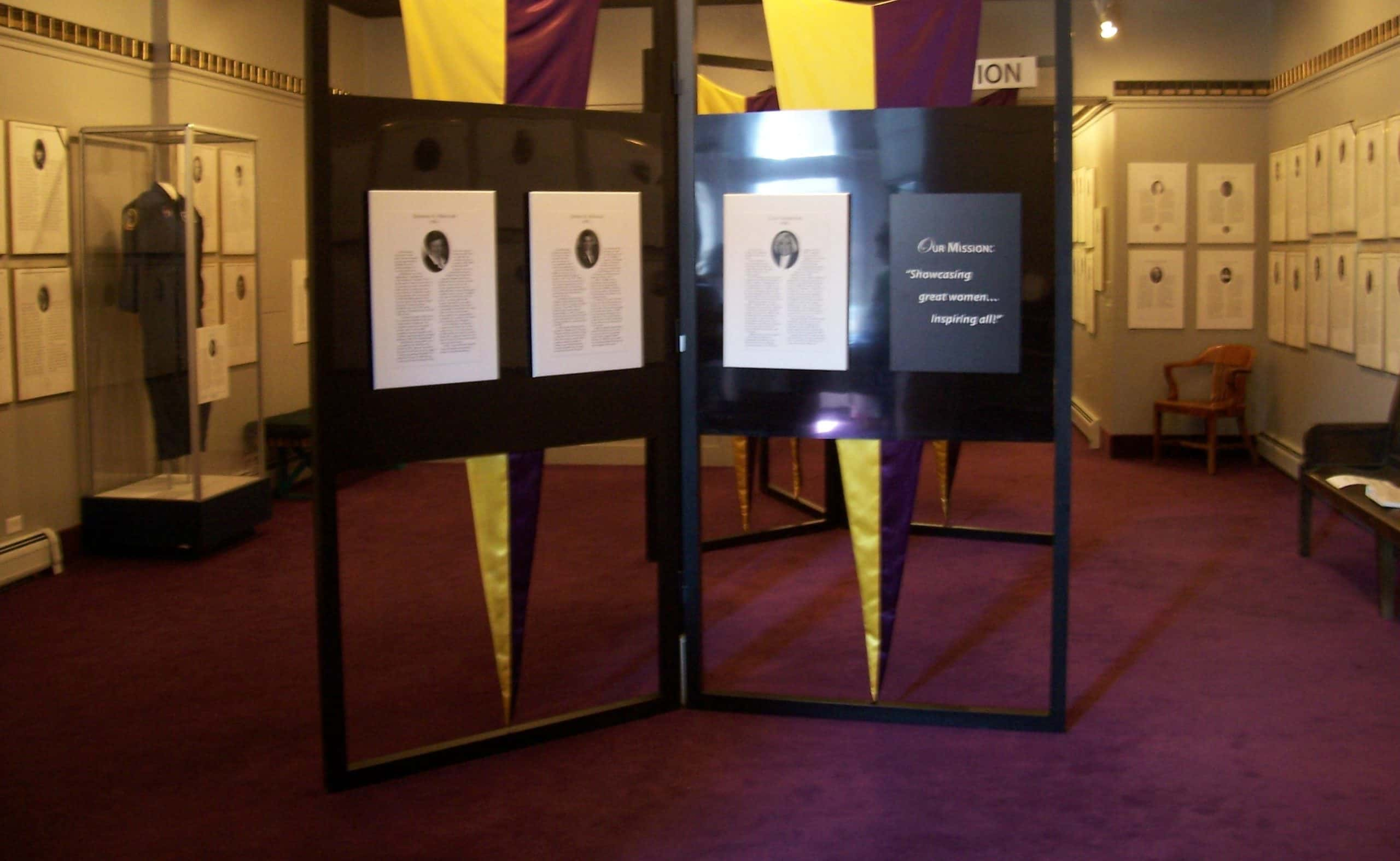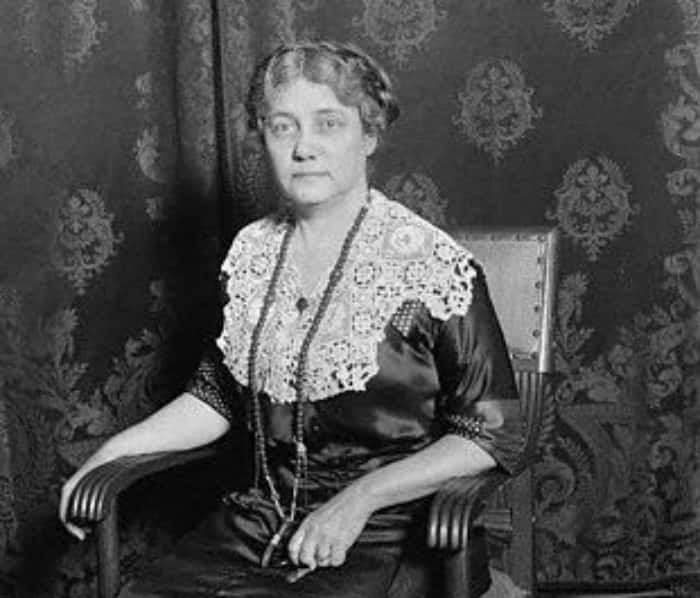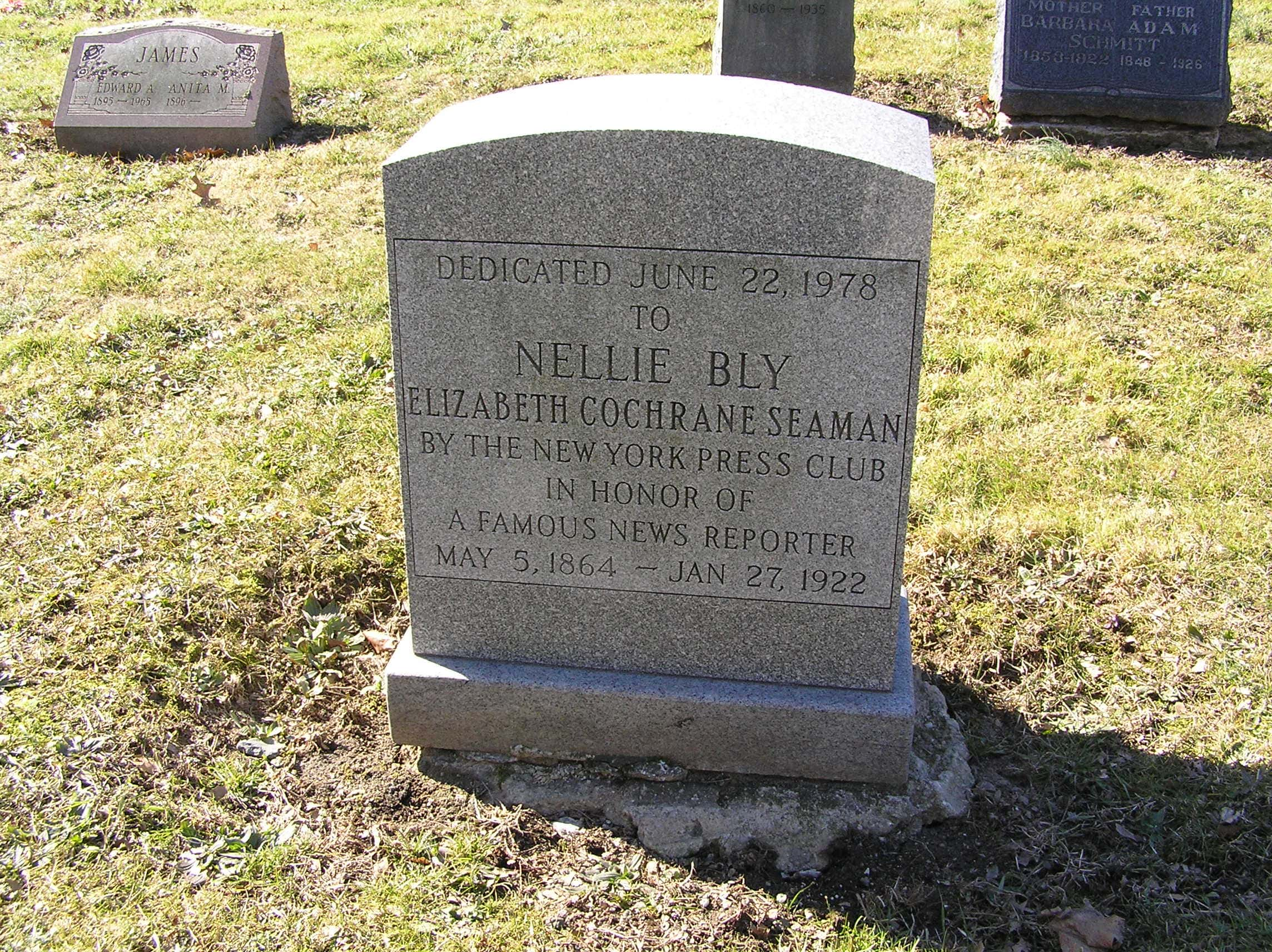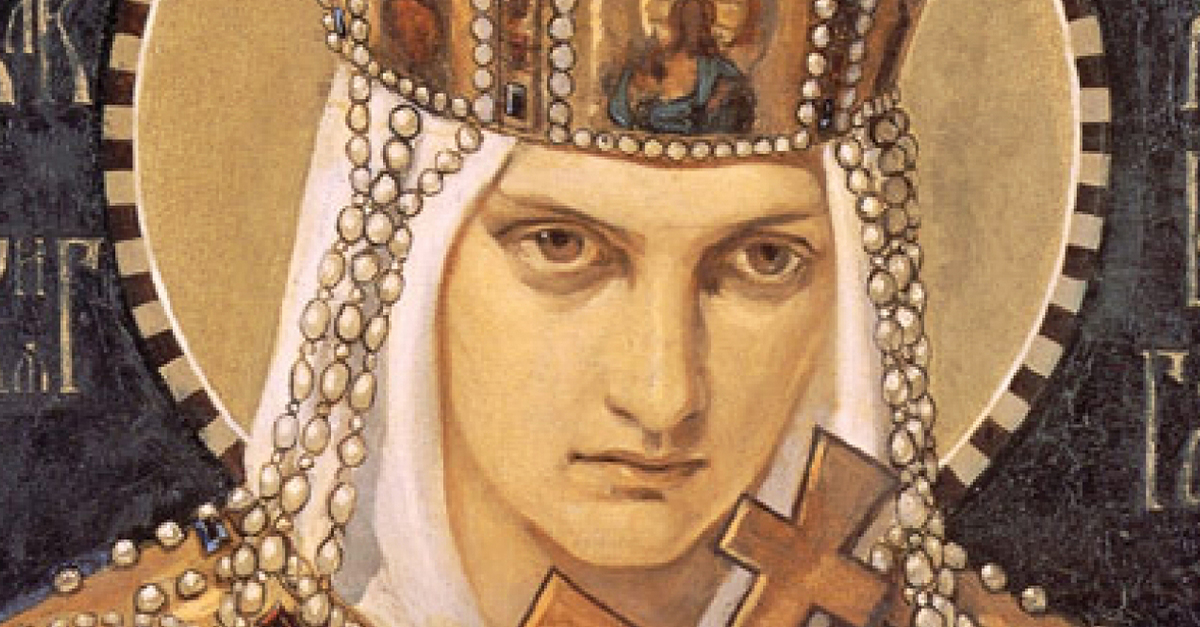Nellie Bly is one of the most remarkable women in history. She was a thrill-seeker, inventor, charity worker, explorer, and an undercover journalist. In a time when women couldn’t vote, Bly travelled the world and achieved nation-wide fame for exposing the horrific conditions at a lunatic asylum.
1. What’s in a Name?
Bly was born on May 5, 1864 in Cochran’s’ Mills, Pennsylvania...but the name on her birth certificate wasn't "Nellie Bly". The woman who would change journalism was actually born as Elizabeth Mary Jane Cochran. When she married (more on that later), she became known as Elizabeth Cochran Seaman. Of course, history has remembered her by her pen name of Nellie Bly.
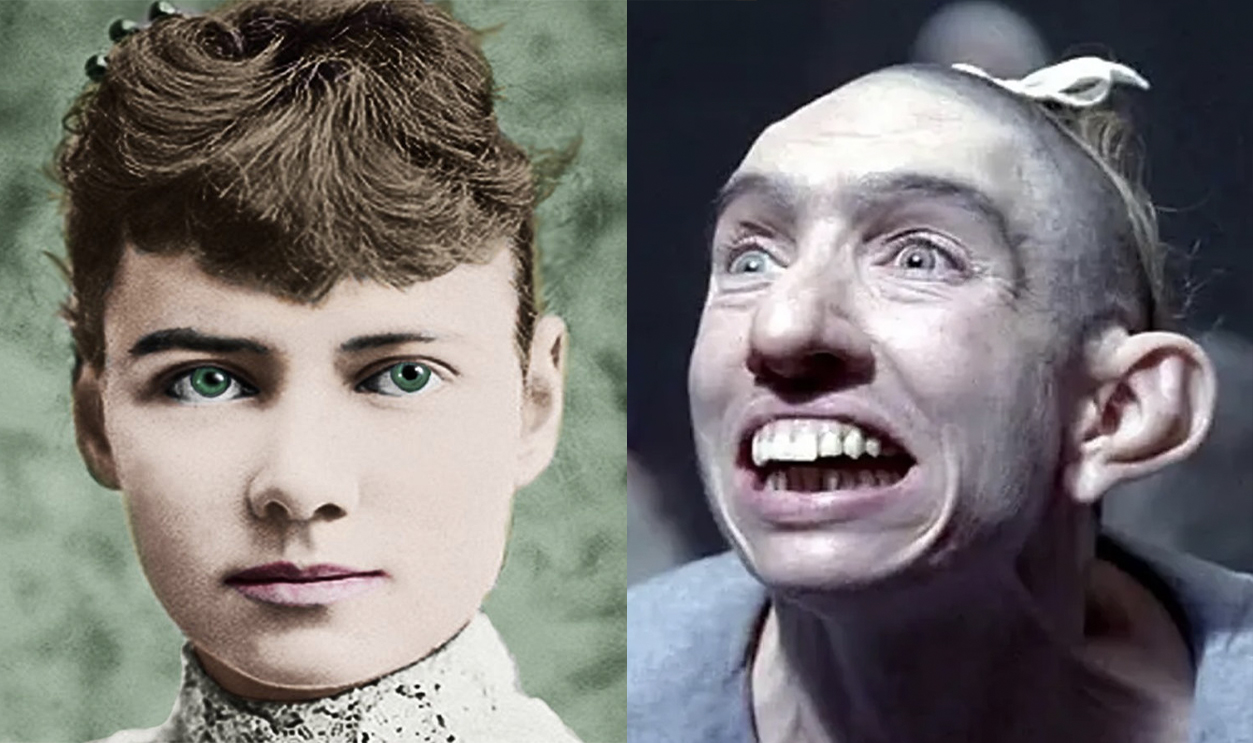
2. I Suspect Foul Play
In 1889, Bly exposed a shocking practice that occurred in America's so-called Gilded Age. Bly discovered that a woman named Eva Hamilton had lured her husband into marriage on the pretence that she was carrying his child. In reality, she wasn't, but she went to disturbing lengths to make it seem like she was really pregnant.
3. Bly's Scoop
Eva went so far as to actually purchase a baby...but her scheme didn't work out. When a nurse confronted her about her child, Eva panicked and stabbed her interrogator. Bly met up with Eva when she was sentenced to lockup so that she could get more information about how she purchased a child. She even posed as a woman wishing to purchase a baby of her own.
4. How it Started: Part I
Bly began her writing career fighting against the patriarchy. When an article in the Pittsburgh Dispatch claimed that a woman’s place in life was childbirth and maintaining households, Bly took serious issue with it. Writing under the pseudonym "Lonely Orphan Girl," Bly sent a passionate response to the Pittsburgh Dispatch.
5. How it Started: Part II
Remarkably, Bly’s outraged retort to a prejudiced article resulted in her getting a writing job. George Madden, the editor for the Pittsburgh Dispatch, was so impressed by Bly’s writing ability that he ran an advertisement asking "Lonely Orphan Girl" to identify herself. When Bly obliged, Madden asked her to write a piece for the newspaper.
6. Taking on Tough Subjects: Part I
Bly wasn’t the first female journalist in American history, but she broke important ground during her early writing career. While women were usually assigned to the subjects of fashion and gardening, Bly wrote investigative articles about the lives of working-class women employed by factories. On a side note, Bly’s first wage working as a journalist was five dollars a week, only slightly more than what the factory workers themselves were making.
7. Taking on Tough Subjects: Part II
Bly’s articles about female factory workers sent shockwaves through the city of Pittsburgh, especially amongst factory owners! When they sent angry letters of protest to the Pittsburgh Dispatch, the newspaper caved into their outrage. Bly suddenly found herself shunted to reporting on fashion, much to her disgust.
8. New York, New York!
In 1887, Bly gave up on the restrictive position she had in the Pittsburgh Dispatch, and like many ambitious writers after her, she moved to New York City. In keeping with her writing ambitions, she was flat broke after a few months. Luckily, she managed to get a job at the New York World. At the time, this newspaper was owned by none other than Joseph Pulitzer.
9. Going Method Before Method Existed
One of Bly’s first assignments with Joseph Pulitzer’s New York World proved to be one of the most important and influential accomplishments of her life. In keeping with Pulitzer’s desire to discuss lurid and unseemly topics to sell papers, he and Bly planned an unprecedented investigation into the conditions of the Women’s Lunatic Asylum on Blackwell’s Island. Bly agreed to go undercover as a madwoman to be committed into the asylum!

History's most fascinating stories and darkest secrets, delivered to your inbox daily.
10. Love and Marriage
In 1895, Bly tied the knot with Robert Seaman. Seaman was not only a prominent manufacturer, he was the head of Iron Clad Manufacturing Co. As a result, Seaman was a millionaire in the 19th century, making him fabulously rich. We’re not saying this was why the 31-year-old Bly married the 73-year-old Seaman, but we can't imagine that it hindered their romance.
11. I Think I’m Ready for a Big Adventure!
In 1872, French author Jules Verne published his now-classic novel Around the World in Eighty Days. Nearly 20 years later, in 1888, Bly suggested a new assignment to her editor at the New York World: what if someone actually tried to go around the world and see how quickly they could do it? She planned to finish in 75 days rather than 80, because if you haven’t caught on, Bly was a "challenge accepted" kind of lady!
12. Surprisingly Easy
In order to get herself committed into the Women’s Lunatic Asylum, Bly checked herself into a boarding house under a pseudonym. While there, Bly behaved as erratically as she could, avoiding sleep and accusing people of looking "crazy". It didn’t take long for people to turn against her and report her to the authorities.
13. Someone Page Kafka
When Bly went on trial, several doctors declared her to be "positively demented" and "undoubtedly insane". Even the newspapers got in on the action, reporting on Bly’s trial with zeal. Luckily, this was before social media, so nobody knew who she really was.
14. Mansplaining Is Eternal
During her arrest and trial as a "madwoman," Bly very nearly blew her cover when faced with the experience of how women with mental illness were treated by authorities at the time. It wasn’t that she got angry, either. The judge presiding over her trial, Patrick G. Duffy, attempted to speak to her in a kind and fatherly tone, suggesting that based on her fancy clothing, she was clearly "somebody’s darling".
Bly couldn’t help bursting into laughter and had to cover her face with a handkerchief.
 Escaping the Madhouse: The Nellie Bly Story, Lifetime
Escaping the Madhouse: The Nellie Bly Story, Lifetime
15. "I Quit!" Wasn’t Original Enough
When Bly resigned from the Pittsburgh Dispatch, she did so in style. Bly dropped the mic, simply leaving a note which read "I am off for New York. Look out for me. -Bly".
16. Shedding Light Where There is None
Bly was always determined to provide a compelling story, regardless of the scope. When she wasn’t travelling around the world or going undercover, Bly interviewed unexpected subjects that other newspapers wouldn't care about. From female criminals and cowgirls to struggling prison matrons and even a self-titled "mind healer," Bly uncovered fascinating lives.
17. What a Pig
You might be wondering how Bly managed to fool so many "professionals" about her sanity or lack thereof. Bly was aware of those doubts and explained how she slipped through the system. Apparently, the physician who examined her spent the entire time flirting with his pretty nurse instead of, you know, actually doing his job.
 Escaping the Madhouse: The Nellie Bly Story, Lifetime
Escaping the Madhouse: The Nellie Bly Story, Lifetime
18. Travelling Along the High Road
Few people know that Bly wasn’t the only female journalist travelling around the world in 1889. In the ultimate petty move, Cosmopolitan magazine sponsored Elizabeth Bisland to try and beat Bly to the finish line. Bly, for her part, didn’t know about Bisland’s journey until she was in Hong Kong. Even when she found out, however, she refused to compete, claiming "I would not race. If someone else wants to do the trip in less time, that is their concern".
19. I Travel Light
When Bly set off on her globetrotting journey, all she had in her possession was the dress on her back, an overcoat for cold weather, several changes of underwear, a travel bag for her toiletries, and a bag of different currencies which she wore around her neck under her clothing. Man, I need more than that when I visit my family for the weekend.
20. Making My Way Down to Mexico
When Bly was only 21 years old, she travelled to Mexico and lived there for six months. She spent her time writing about the customs and lives of Mexicans which later became a book. Fittingly, her book was titled Six Months in Mexico. It may not sound exciting, but trust us: Bly's time in Mexico was full of intrigue and drama.
21. Making My Way Out of Mexico
Bly’s time in Mexico ended abruptly when she picked a fight with a very powerful opponent. At the time, Mexico’s government was headed by the dictator Porfirio Diaz. When a local journalist was imprisoned for critiquing Diaz, Bly came to the journalist’s defence with a heroic gesture. She wrote a scathing attack against Diaz. As Diaz got ready to have Bly detained, she fled to the United States where she continued to deride Diaz as a tyrant.
22. The Days Before Twitter
On her journey around the world, Bly made use of boats, railways, and covered the last leg of her journey in a newfangled contraption now known as a private plane. Due to the electric telegraph and submarine cable networks, Bly could send progress reports on a fairly regular basis. The New York World milked her journey with gusto, encouraging readers to guess where she’d be next and how long she’d take to get home.
23. A Real Difference
After Bly was released from the Women’s Lunatic Asylum, she released her account for the country to read, fittingly titled Ten Days in a Mad-House. The terrifying book took the United States by storm, and it inspired a grand jury to launch an investigation with Bly serving as an advisor and witness. Her blistering investigation led to nationwide reforms.
24. Based on a True Story
Bly’s Ten Days in a Mad-House underwent a rediscovery in the 2010s by the art world. American Horror Story based its second season, Asylum, on Bly’s experiences at the Women’s Lunatic Asylum and a stage adaptation was produced in 2018, while Lifetime released a film adaptation the following year.
 Escaping the Madhouse: The Nellie Bly Story, Lifetime
Escaping the Madhouse: The Nellie Bly Story, Lifetime
25. For Too Brief a Time
Like many people in the 19th century, Bly didn’t have an extensive education. She spent a term at boarding school but was forced to drop out when tragedy struck. When her father passed on, either in 1870 or in 1871, young Bly could no longer afford tuition. She may have been forced out of the classroom, but Bly wouldn't give up on so easily.
26. What a Coincidence!
Incredibly, Bly took some time out of her journey around the world to meet the French author Jules Verne, who had previously written the very novel which was inspiring her own globe-trotting adventure. We can’t imagine anything as meta as that ever happening in the 19th century.
27. Just Some Sightseeing, No Biggie
Among the more bizarre adventures that Bly had on her journey around the world in 72 days took place when she was travelling through Asia. Delays in travel meant that she took more time to explore. This included purchasing a monkey for herself in Singapore and going to a Chinese leper colony.
28. Chicken or Egg
One of the most horrifying revelations that Bly uncovered in the treatment of female asylum patients was that most of the patients weren’t actually insane. They were just poor immigrant women who couldn’t speak English. Due to their lack of family, safety nets, or basic communication, it left them completely vulnerable to the system. But the nightmare gets darker.
29. The Ultimate Gaslight
As Bly came to suspect after her horrific experiences in the asylum, many patients may not have been crazy when they entered the asylum, but after the sadistic "treatments" many left with irreparable psychological trauma.
30. Studying Splits Ville
You might be wondering what Bly wrote about in her first article for the Pittsburgh Dispatch. It was titled "The Girl Puzzle" and it addressed how women were affected by divorce.
31. That is Disgusting!
One of the worst experiences which Bly reported experiencing during her time in the Women’s Lunatic Asylum were the baths. In her subsequent account, Bly described being doused over her head with buckets of frigid water which had previously been used to bathe the other patients, all while her "teeth chattered and [her] limbs were goose-fleshed and blue with cold".
 Escaping the Madhouse: The Nellie Bly Story, Lifetime
Escaping the Madhouse: The Nellie Bly Story, Lifetime
32. Oh, But It Gets Worse
What makes the horrific baths even worse was that she was only allowed to dry herself off with towels used by former patients, some of whom had been covered in open sores and other skin conditions.
33. No Man’s Land
Even in her autumn years, Bly wasn’t afraid to pursue dangerous topics. During the First World War, when Bly was in her 50s, she travelled to the Eastern Front. Incredibly, Bly was detained during her time there on the suspicion that she was a spy for the British! Sadly, Wonder Woman didn’t show up to team up with her.
34. Roll the Dice!
Bly’s incredible journey around the world was so well-known and celebrated that she inspired a board game in her own lifetime! Known as "Round the World with Nellie Bly," the board game was originally created in 1890.
35. Time for a Career Change
Bly eventually gave up journalism while she was married to Robert Seaman. She was far from retired, though. Due to Seaman’s old age and failing health, he handed the reigns of his manufacturing company to Bly. Thus, she began her new career as an industrialist and inventor. She held U.S. patents for a milk can and a stacking garbage can, and some people claim that she was responsible for the very first practical 55-gallon oil drum.
36. Minor Setback
Unfortunately for Bly, she wasn’t as adept at being an industrialist as she was at being a journalist. Despite all her patents, she didn't have experience running a manufacturing company and unfortunately, the consequences were dire. One factory manager embezzled money from company and eventually, Iron Clad Manufacturing Co. went bankrupt. After this failure, Bly went back to journalism, breaking new ground even into her later years.
37. Well Done!
Fittingly, Bly has given her name to a journalism award given out by the New York Press Club. The "Nellie Bly Cub Reporter" award, as it’s called, recognizes an early-career reporter's journalistic achievements.
38. Starring Me!
Some of you have probably heard of Newsies, either as the 1992 film starring Christian Bale or the hit Broadway musical. In the musical, a character named Katherine Plumber is a plucky journalist who tries to help the newsboys in their strike against the newspaper barons like Joseph Pulitzer. Given the time period and the fact that Bly worked directly for Pulitzer, it won’t surprise some of you to know that Bly herself inspired Plumber’s character.
 Flickr
Flickr
39. In A Hot Second
Bly’s journey around the world in 72 days was actually a world record, but it didn’t last very long. Others were inspired to beat her score, including George Francis Train, who outdid Bly just a few months after her own trip was finished.
40. "Nostradamus" is My Middle Name
In 1913, between 5,000 and 10,000 women suffragettes marched on Washington, D.C. The Women Suffrage Parade was the first instance of an organized political march in the capital’s history. Bly, ever the consummate journalist and feminist, covered the event. Despite her enthusiasm for the event, Bly predicted that women wouldn’t get the vote until 1920. Incredibly, she was correct to the year!
41. Which One Really Happened??
It isn’t exactly known how Bly got her pen name, as two different versions of the story exist, but they both claim that Stephen Foster’s then-popular song "Nelly Bly" inspired the moniker. The stories go that either Bly or her editor George Madden chose the name but when it came time to write it down, Madden misspelled it as "Nellie Bly".
42. "Theodore" and "Bluenose" were Already Taken
Some people show love by sending flowers. Others send chocolates. Toronto...names boats after people? The city paid tribute to the legendary journalist by naming a 52-foot-long steam-powered tugboat The Nellie Bly. Like its namesake, the boat had its heroic moments. In 1906, the ship stopped a deadly fire from spreading in the city.
43. What an Upset!
In 1946, Bly’s life was adapted into a musical theatre piece. Despite being composed by Oscar-winner Jimmy Van Heusen, Nellie Bly was sadly less than successful. It ran on Broadway for a mere 16 performances before throwing in the towel.
44. Thanks for Your Service
During the brutal Civil War, two of Bly's older half-brothers, John Michael and George Washington, enlisted in the Union Army. Thankfully, they both survived their service before Bly was born.
45. In Esteemed Company
In 1998, the National Women’s Hall of Fame honored Nellie Bly's legacy and remarkable achievements by inducting her. Bly's fellow initiates include Harriet Tubman, Susan B. Anthony, Sally Ride, and Billie Holiday.
46. Time for a Change
When Bly was a little girl, she went by the nickname "Pinky". In a time when the little girls of Cochran’s Mills usually dressed in grays or browns, Bly opted for "stand-out pink". Bly eventually fell out of love with the nickname by the time she was a teenager, and even changed her last name to "Cochrane" to distance herself from the past.
47. Rest in Peace
In 1922, Bly succumbed to pneumonia in New York City’s St. Marks Hospital. At 57 years old, she knew that she had done something that few people accomplish: Lived life to the fullest.
48. What are the Odds of That?
We’ve already discussed the parallel globe-trotting journey which Bly shared with fellow journalist Elizabeth Bisland. However, the women also shared something much more haunting. Not only did both die of pneumonia, Bly and Bisland are buried in the same cemetery.
49. This is Getting Ridiculous
Although Bly gave a convincing performance of someone who was mentally unstable during her arrest and trial, she dropped all pretences of madness once she was actually committed to the Women’s Lunatic Asylum on Blackwell’s Island. She thought that would change the way she was treated, but she was so, so wrong. In a chilling twist, none of the staff caught on. They were so biased that they assumed Bly’s sudden sane behavior was just another symptom of her mental illness. Yikes.
 Escaping the Madhouse: The Nellie Bly Story, Lifetime
Escaping the Madhouse: The Nellie Bly Story, Lifetime
50. Hard Knock Life
During her ten days in the Women’s Lunatic Asylum, Bly experienced the kind of atrocious mistreatment which had always been dealt to asylum patients. The nurses often used physical violence to keep patients in line, restraining them with ropes, and making them eat in areas that were covered in both human and rat excrement.
 Escaping the Madhouse: The Nellie Bly Story, Lifetime
Escaping the Madhouse: The Nellie Bly Story, Lifetime

